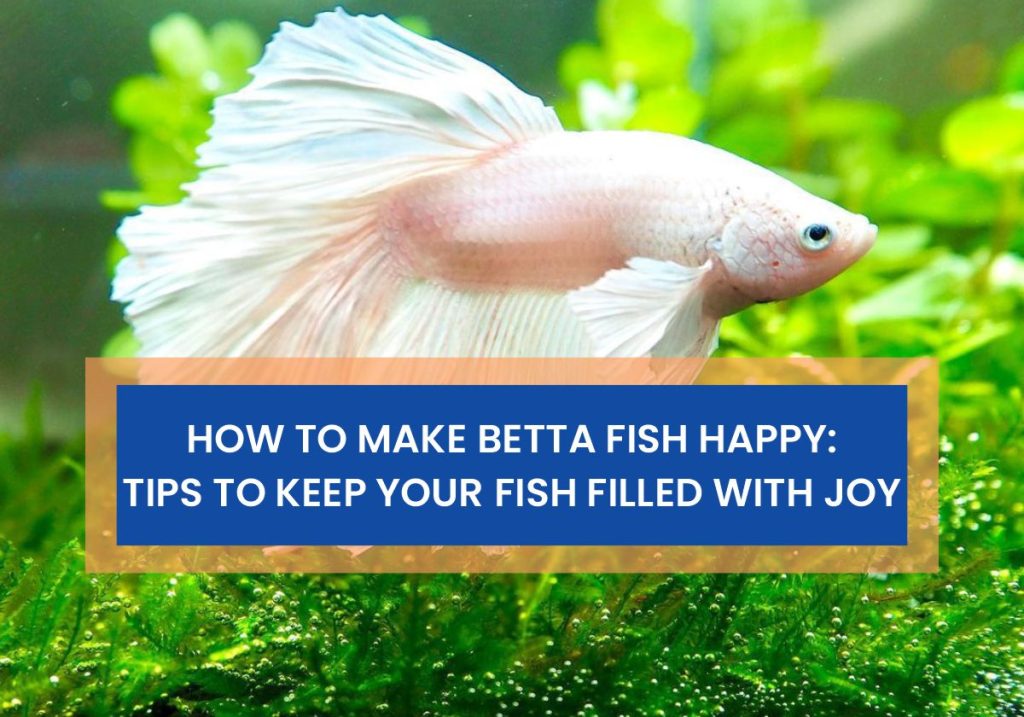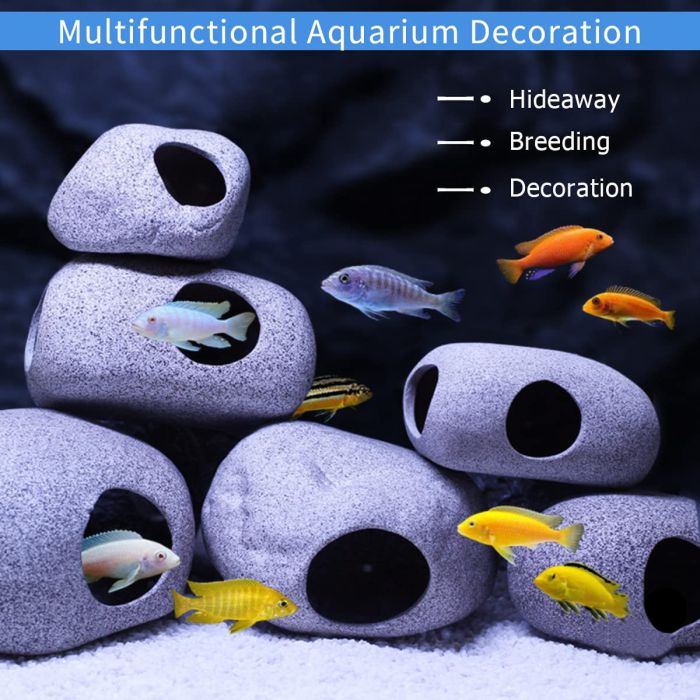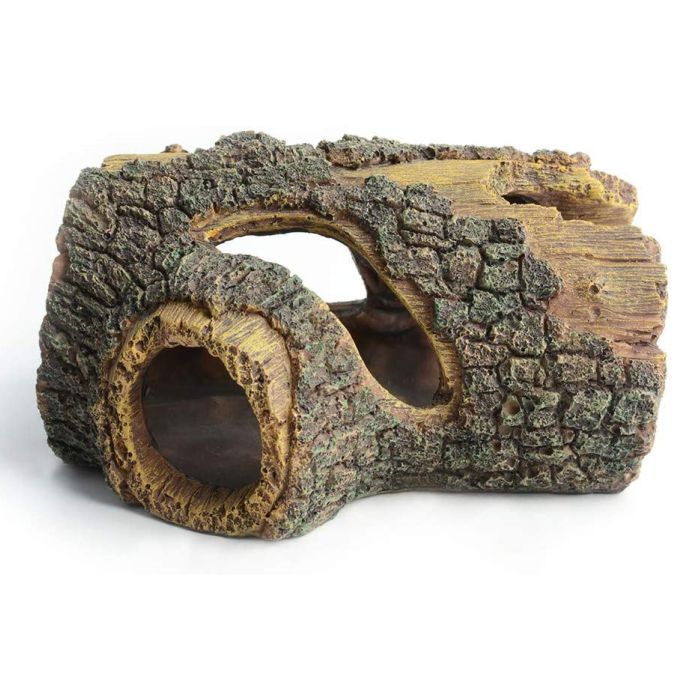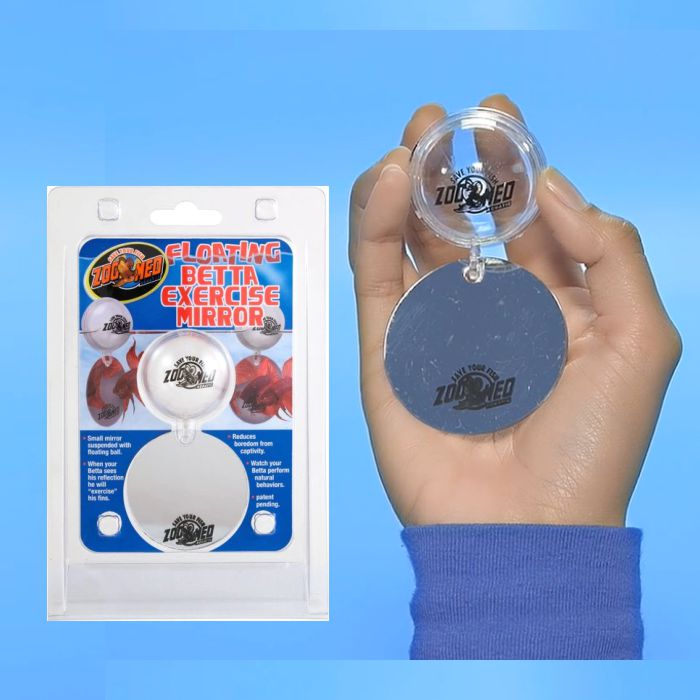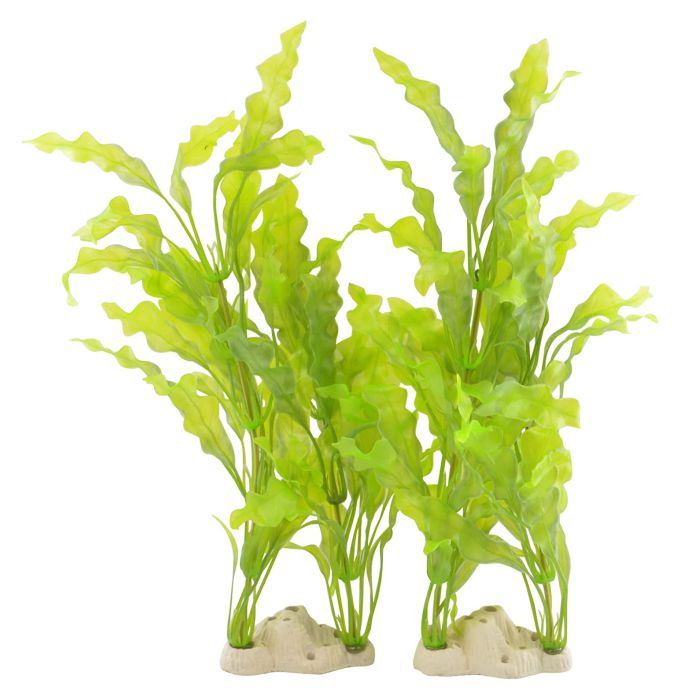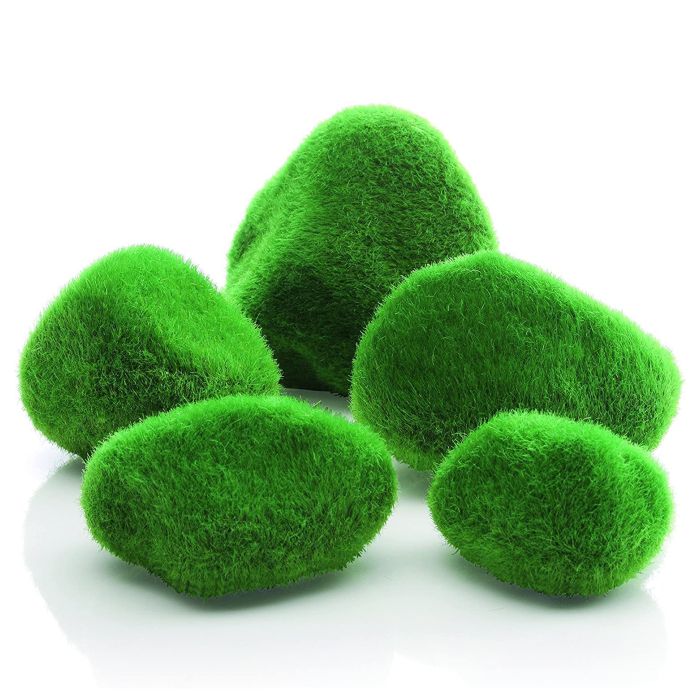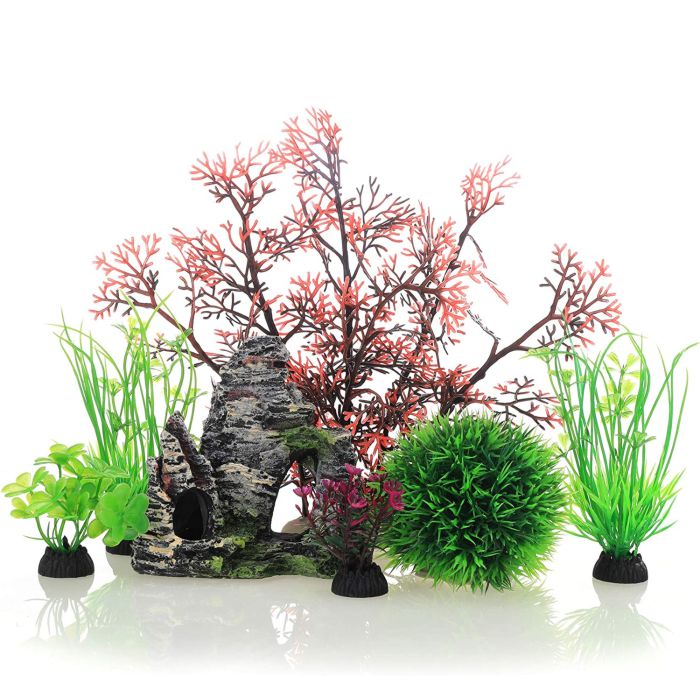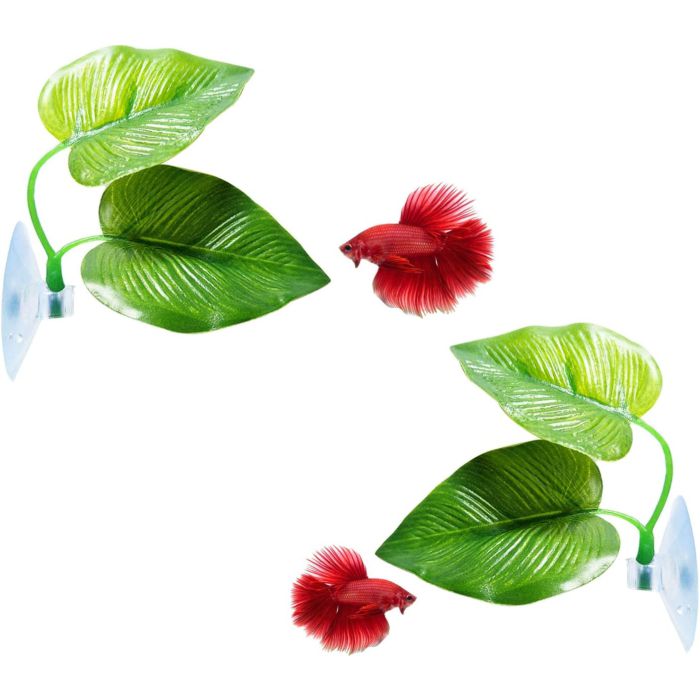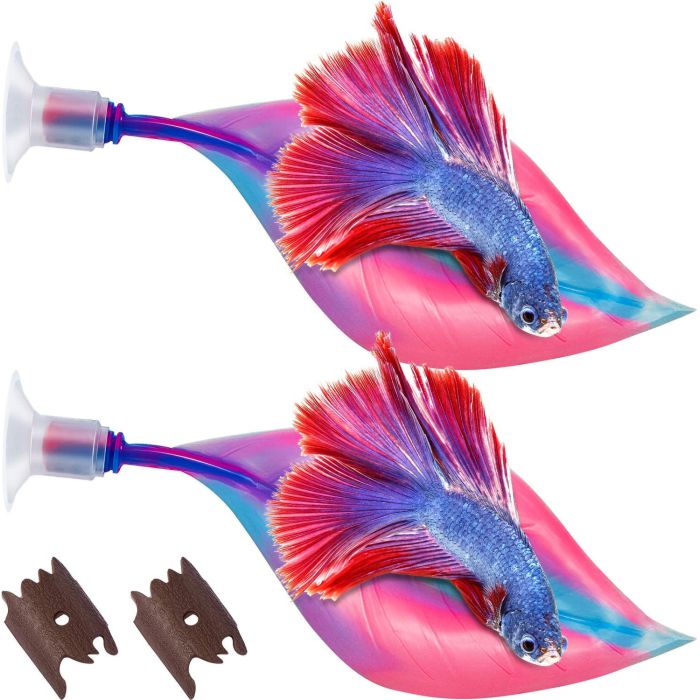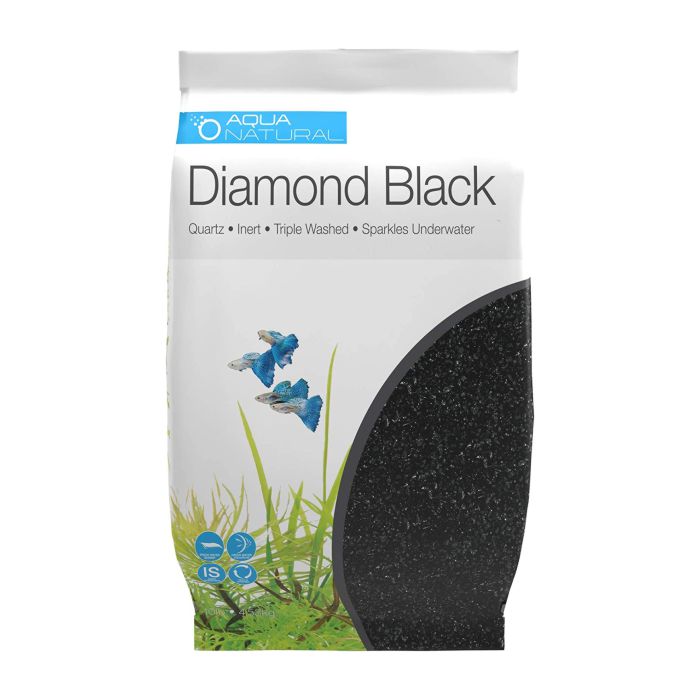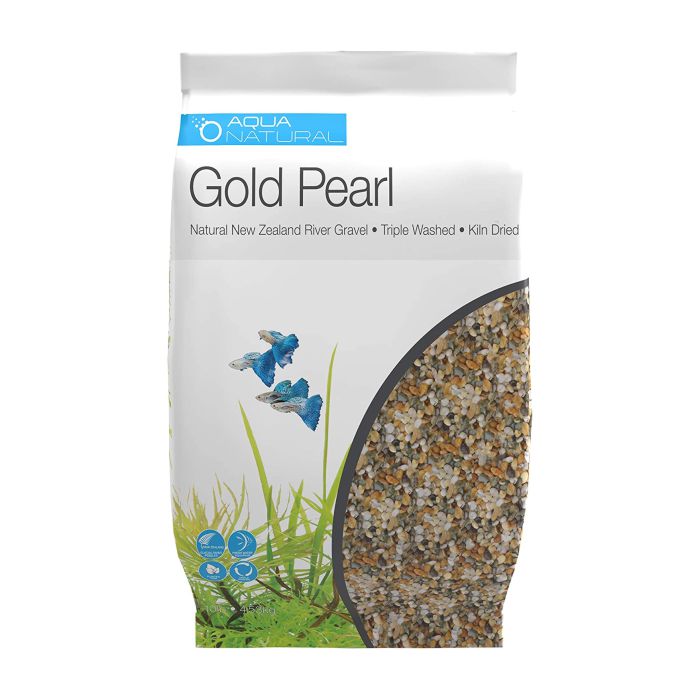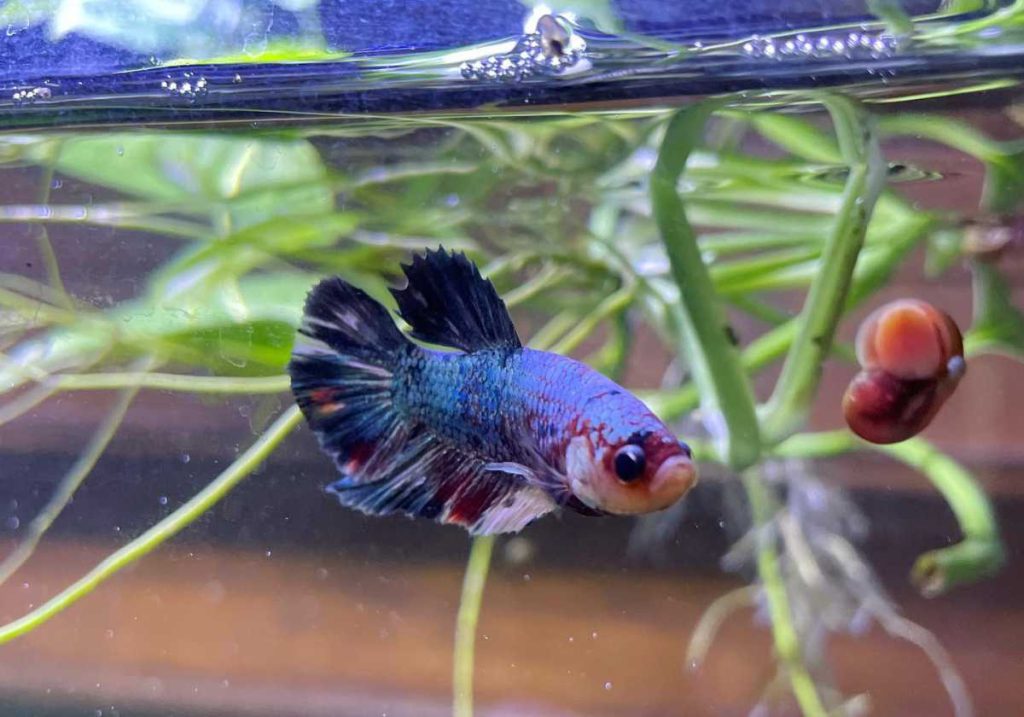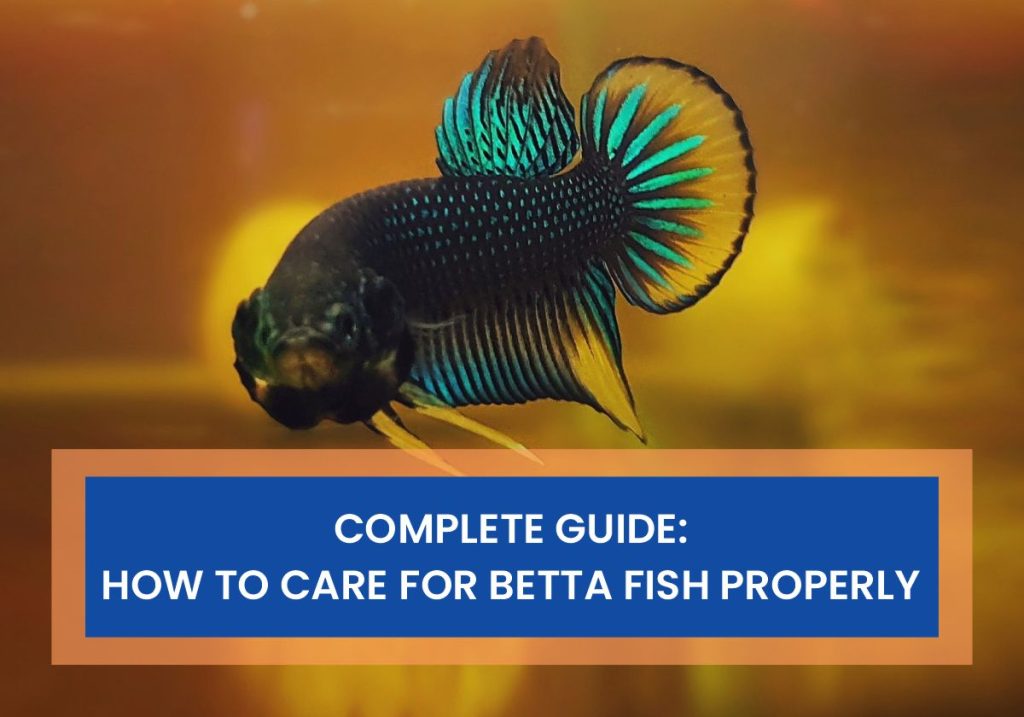As an Affiliate, We may earn a commission that doesn't cost you extra from qualifying purchases using links in this post. It helps keeps this blog running.
As a proud owner of a betta fish, you want to ensure that your aquatic friend is happy and healthy. Betta fish, also known as Siamese fighting fish, are native to the shallow waters of Southeast Asia, including Thailand, Cambodia, and Malaysia. They are known for their striking colors and unique personalities. The happiness of betta fish plays a crucial role in their overall health and well-being.
As beloved pets known for their stunning colors and unique personalities, betta fish require more than just a suitable tank and regular feeding to thrive. Creating an enriched environment, providing mental stimulation, and maintaining proper water quality are essential factors that contribute to the happiness of betta fish. In this comprehensive guide, we will explore how to make your betta fish happy by understanding their behavior and needs, providing appropriate care, and monitoring their health. By prioritizing betta fish happiness, you can ensure that your finned friend leads a fulfilling and healthy life. So, let’s dive in and learn the secret tips to keeping your betta fish joyful, content, and thriving!
Understanding Betta Fish Behavior and Specific Needs
In the wild, betta fish exhibit certain behaviors and tendencies that are important for you to understand so you can easily replicate their natural environment in captivity. Replicating their natural environment in captivity is crucial for your betta fish’s happiness and overall well-being.
Below are Betta fish’s natural behaviors and tendencies in the wild that make them happy:
- Solitary Nature: Betta fish are solitary creatures and prefer to live alone. In the wild, male betta fish are highly territorial and aggressive towards other males, which is why they establish their own territories.
- Bubble Nest Building: Male betta fish are known for their unique bubble nest-building behavior. They create a nest at the water’s surface using bubbles, saliva, and plant debris. The bubble nest serves as a place for the male to protect the eggs during the breeding process.
- Labyrinth Organ: Betta fish have a unique labyrinth organ that allows them to breathe air directly from the surface. This enables them to survive in oxygen-depleted waters in the wild.
- Active Swimmers: Betta fish are active swimmers and require regular exercise in ample space to swim and explore their environment to stay healthy and happy. So, a small fish tank would not suffice.
While replicating the natural environment of betta fish in captivity is crucial for ensuring their happiness and well-being, as it helps them feel more comfortable, encourages their natural behaviors, and reduces stress, resulting in healthier and happier betta fish, it is important to tailor all of the above to the specific needs of your fish, as each betta fish is unique and may require specific attention.
How To Make Your Betta Fish Happy By Creating the Perfect Environment
Replicating Betta fish’s natural environment is crucial to their happiness and well-being. Here are some tips to create the perfect environment for your betta fish to make your Betta fish happy:
1) Choose the Right Tank Size and Type
Betta fish are notorious for their territorial nature, and providing them with adequate space is essential for their happiness. Here are some things to consider when selecting a tank for your betta fish:
- Tank Size: A single Betta fish will thrive gracefully in tanks that are at least 5 gallons in size. Smaller tanks can cause stress and health issues for your fish, while larger tank allows for better water quality and reduces the need for frequent water changes.
- Tank Shape: Betta fish prefer tanks that are longer horizontally rather than taller vertically. A tank with a longer length provides more surface area for your betta fish to explore and swim freely.
- Tank Type: Avoid tanks with sharp edges or corners, as they can cause injury to your betta fish. Opt for tanks with smooth edges and rounded corners to ensure the safety of your fish.
2) Provide the Right Water Conditions and Quality
Water quality plays a vital role in the health and happiness of your betta fish. Here are 5guidelines for maintaining optimal water conditions to make your Betta fish happy:
- Temperature: Betta fish are tropical fish and require a water temperature between 76-82°F (24-28°C). We recommend you use a reliable aquarium heater to maintain a consistent temperature in your betta fish tank.
- Water Filtration: Betta fish prefer clean and calm waters, so a gentle filter is ideal for their tank. We recommend you avoid aquarium filters with strong currents, as they can stress out your fish. Choose a filter with an adjustable flow rate or baffles to reduce the water current.
- Water Parameters: Maintaining proper water parameters and conditions is crucial for betta fish happiness. Bettas prefer water temperatures between 76-82°F, slightly acidic water with a pH range of 6.5-7.5, and zero ammonia levels. Regular water testing using a reliable aquarium test kit, water changes, and the use of a water conditioner are important for maintaining stable water parameters and a clean environment.
- Water Changes: Regular water changes are crucial to maintaining water quality and cleanliness. Aim to change 25-30% of the water in your betta fish tank every week, and make sure to use a dechlorinator to remove any harmful chemicals from tap water.
- Clean Tank: Maintaining a clean tank is essential for the health and happiness of your betta fish. Regularly remove uneaten food, debris, and waste from the tank to prevent water contamination. Perform routine water changes and clean the tank and decorations as needed to maintain optimal water quality. Avoid using harsh chemicals or soaps when cleaning the tank, as they can be toxic to your fish.
3) Provide Hiding Places and Enrichment
Betta fish enjoy exploring and having hiding places in their tank. Here are 4ways to provide enrichment and hiding places for your betta fish:
– Decorations & Toys:
Use decorations, toys, and mirrors to create multiple levels and areas for exploration, resting, and play. Provide caves, tunnels, and hiding spots using aquarium-safe decorations, such as ceramic or PVC pipes, coconut shells, or resin caves. Use natural-looking decorations, such as rocks, driftwood, and clay pots, to mimic betta fish’s natural habitat. Avoid sharp or rough decorations that can tear betta fish’s delicate fins.
– Live or Silk Plants:
Consider using live or silk plants in your betta fish tank to provide cover, resting spots, and oxygenation. Opt for soft, non-toxic plants such as Anubias, java ferns, and mosses that won’t harm your betta fish’s delicate fins. Avoid using sharp or toxic plants like plastic or sharp-edged plants that can potentially injure your betta fish. Be sure to arrange the plants at various heights and densities to create hiding spots and a natural environment for your betta fish to thrive in.
– Floating Plants:
Incorporate plants like duckweed, water lettuce, and frogbit into your betta fish tank to provide shade, resting spots, and natural filtration. These floating plants not only mimic betta fish’s natural habitat but also create a sense of security for them. Remember to regularly trim and maintain these plants to prevent them from covering the entire surface of the tank and blocking light, ensuring a healthy and balanced environment for your betta fish.
– Substrate:
Bettas are known to rest on the tank bottom, so consider using a soft and fine-grained substrate such as sand or rounded gravel for the tank bottom of your betta fish. This will create a comfortable and natural-looking environment. Avoid substrates that are sharp or rough, as they can potentially scratch or injure your betta fish’s fins. Additionally, using a dark-colored substrate may help enhance the colors of your betta fish and reduce stress.
Note: Always monitor your betta fish’s behavior and adjust the tank decorations and plants as needed. Some betta fish may prefer more hiding spots, while others may prefer open spaces for swimming. Keep the tank clean and maintain appropriate water parameters to ensure a healthy and happy environment for your betta fish.
4) Feed Your Betta Fish a Nutritious Diet
Proper nutrition is vital for the health and happiness of your betta fish. Here are 3 tips for feeding your betta fish a nutritious diet:
- Choose High-Quality Betta Fish Food: Opt for betta fish food that is specifically formulated to meet their carnivorous nutritional needs. Look for high-protein options to provide the necessary nutrients for your betta fish’s health such as Betta fish pellets, fish meal, shrimp meal, insect meal, freeze-dried or frozen brine shrimp, bloodworms, and daphnia, which are excellent sources of protein and can provide variety in the betta’s diet. Avoid overfeeding your betta fish, as it can result in obesity and other health issues. Feed them small amounts of food 2-3 times a day, and remove any uneaten food to prevent water contamination.
- Offer Variety in Their Diet: In addition to betta fish food, offer a variety of foods to keep your betta fish happy and healthy. Consider adding live or frozen foods like brine shrimp, daphnia, or bloodworms as treats to provide additional protein and enrichment. Properly thaw frozen foods before feeding them to your betta fish, and remove any uneaten food to prevent water quality issues.
- Avoid Overfeeding: Overfeeding is a common mistake among betta fish owners. Due to their small stomachs, betta fish can easily overeat, leading to obesity, bloating, and other health issues. Feed your betta fish small amounts of food that they can consume within 2-3 minutes, and monitor their body condition to ensure they are maintaining a healthy weight. Adjust their feeding amount accordingly to prevent overfeeding.
5) Pay Attention To Their Behaviour and Interact With Them
Betta fish are known to be intelligent and curious creatures, and bonding with them through regular interaction, observation, and playtime can provide numerous benefits for their happiness, not to mention the valuable insights you get about their well-being. Some of the benefits of bonding with betta fish include:
- Reduced Stress: Spending time with your betta fish and providing positive interactions can help reduce their stress levels. Interacting with them through activities like gentle finger tapping on the tank glass or playing with a laser pointer can provide mental stimulation and engagement, alleviating stress and promoting relaxation.
- Increased Trust: Regular interaction and playtime can help build trust between you and your betta fish. When they associate you with positive experiences, such as providing food or playtime, they are more likely to feel comfortable and relaxed in your presence. This can lead to a stronger bond and a more positive relationship between you and your betta fish.
- Enhanced Socialization: Betta fish are social animals and can benefit from social interaction. Spending time with them and providing playtime can help fulfill their social needs and prevent boredom or loneliness. This can result in happier and more content betta fish that exhibit natural behaviors and thrive in their environment.
- Enriched Environment: Providing regular interaction and playtime can enhance the overall environment of your betta fish tank. It can add variety and stimulation to their routine, preventing them from becoming bored or stressed in a stagnant environment. This can contribute to a happier and healthier betta fish that is more active and exhibits natural behaviors.
- Bonding Experience: Bonding with your betta fish through regular interaction and playtime can create a meaningful and enjoyable experience for you and your fish. It can deepen your connection with your pet and foster a sense of companionship and enjoyment in caring for them. This can also result in a more fulfilling and rewarding relationship with your betta fish.
Signs Of Unhappy Betta Fish
As a betta fish owner, it’s important to understand the behaviors and cues that indicate your betta fish is unhappy or in distress. Like any living creature, betta fish can experience unhappiness and sadness. As a responsible betta fish owner, it’s important for you to be attentive to their behavior and well-being.
Look out for the following to know the signs of unhappy betta fish. By understanding these signs, you can take appropriate measures to address any issues and promote your betta fish’s happiness.
List of Signs of Unhappy Betta Fish:
- Lethargy: If your betta fish appears sluggish or lacks energy, it may be a sign of unhappiness. Betta fish are naturally active and curious, so a sudden change in their behavior can indicate that they are not feeling their best.
- Loss of Appetite: Betta fish are known for their voracious appetite. If your betta fish is refusing food or eating significantly less than usual, it could be a sign of unhappiness or illness.
- Faded Colors: A betta fish’s bright colors are a reflection of its health and mood. If your betta fish appears dull or faded in color, it may be an indication of unhappiness or stress.
- Hiding or Aggression: Betta fish are solitary creatures and often display territorial behavior. However, excessive hiding or aggression towards tank mates or even their own reflection in the tank could be a sign of stress or unhappiness.
- Gasping at the Surface: Betta fish are labyrinth fish, which means they have a specialized organ that allows them to breathe air from the surface. If your betta fish is repeatedly gasping for air at the surface, it could be a sign of poor water quality or stress.
- Clamped Fins: Healthy betta fish typically have their fins fully spread out, while sad betta fish may display clamped fins, where their fins are held close to their body. This can indicate discomfort or stress.
- Erratic Swimming Patterns: If your betta fish is darting around the tank or swimming erratically, it may be a sign of distress or unhappiness. Normal swimming behavior for betta fish is smooth and graceful, so any sudden changes should be monitored.
- Lack of Interest in Surroundings: Betta fish are known to be curious and interactive. If your betta fish shows disinterest in their surroundings or ignores things that would normally catch its attention, it may be a sign of a sad betta fish.
It’s important to note that betta fish may display these behaviors for various reasons, and it’s crucial to assess their overall environment and health to determine the cause of their unhappiness. Consulting with a qualified veterinarian who specializes in fish health is recommended if you notice any concerning changes in your betta fish’s behavior or appearance.
9 Common Misconceptions about Betta Fish Care and Happiness
| Misconception | Fact |
|---|---|
| Betta fish can thrive in small, unfiltered tanks or bowls. | Contrary to popular belief, betta fish require a properly sized tank with a minimum of 5 gallons for their health and happiness. Small tanks or bowls can quickly accumulate toxins and pollutants, leading to poor water quality and stress for betta fish. |
| Betta fish can survive on a diet of only dry pellets. | While betta fish can eat dry pellets, a varied and balanced diet is crucial for their overall health and happiness. Betta fish should be fed a combination of dry pellets, frozen or live foods, and occasional treats to ensure they receive the necessary nutrients. |
| Betta fish prefer living in isolation | While betta fish are known for their aggressive nature, they still benefit from mental stimulation and social interaction. Providing appropriate tank mates or using a mirror to stimulate their natural behaviors can help reduce stress and enhance their happiness. |
| Betta fish do not require a heater or filtration. | Betta fish are tropical fish and require a stable temperature between 78-82°F to thrive. A heater and a gentle filtration system are essential to maintain the water quality and temperature in the betta fish tank, promoting their well-being and happiness. |
| Betta fish do not need a decorated tank. | Betta fish naturally thrive in heavily planted environments with hiding spots, resting areas, and visual barriers. A well-decorated tank with live or silk plants, caves, and ornaments can provide enrichment, reduce stress, and contribute to betta fish happiness. |
| Betta fish do not require regular water changes. | Regular water changes are crucial to maintain optimal water quality for betta fish. Betta fish produce waste and toxins that can accumulate over time, leading to stress, illness, and unhappiness. Regular partial water changes are necessary to remove these pollutants and maintain a healthy environment for betta fish. |
| Betta fish can live in small, unheated containers. | Betta fish are tropical fish and require a stable temperature between 78-82°F to thrive. Keeping them in unheated containers can lead to temperature fluctuations and stress, which can negatively impact their health and happiness. |
| Betta fish can be housed in overcrowded tanks. | Betta fish require adequate space to swim and establish territories. Overcrowding can lead to stress, aggression, and poor water quality, affecting their overall well-being and happiness. |
| Betta fish do not need a proper lighting schedule. | Betta fish, like other fish, require a regular lighting schedule to mimic their natural day-night cycle. Inconsistent or prolonged lighting can disrupt their sleep patterns and stress them out, impacting their happiness and health. |
Frequently Asked Questions (FAQs)
Can betta fish live in small bowls or vases?
While betta fish can survive in small bowls or vases, it is not recommended as their permanent habitat. Bettas require a tank of at least 5 gallons with a heater and proper filtration to thrive and be happy.
Can betta fish live with other fishes?
Bettas are solitary fish and may not do well with the presence of other fish, especially other male bettas or aggressive species. It’s best to keep betta fish in their own tank to avoid any conflicts and ensure their happiness.
How often should I feed my betta fish?
Betta fish should be fed small amounts of food 2-3 times a day. Avoid overfeeding as it can lead to obesity and other health issues. Feed only what your betta fish can consume within 2-3 minutes and remove any uneaten food to maintain water quality.
Can I feed my betta fish treats?
Yes, you can offer treats to your betta fish as long as they are appropriate for their diet. Live or frozen foods like brine shrimp, daphnia, or bloodworms can be offered as occasional treats to provide additional protein and enrichment.
How can I tell if my betta fish is happy?
A happy betta fish will exhibit active behavior, vibrant colors, and a healthy appetite. They will swim around, explore their environment, and show interest in their surroundings. A stressed or unhappy betta fish may exhibit lethargy, loss of appetite, hiding, or aggressive behavior.
So, remember, a happy betta fish is a healthy betta fish! Take the time to understand their unique needs and provide them with the care and attention they deserve. With the right care, your betta fish can live a long and fulfilling life, bringing joy and beauty to your home aquarium.

I’m Akin Bouchard. Even though I now own several different fish species, I first became a koi pond owner because I loved these creatures and wanted to turn my passion into something more serious. I take pride in my collection of koi fish and love sharing my knowledge with others interested in these beautiful creatures.

